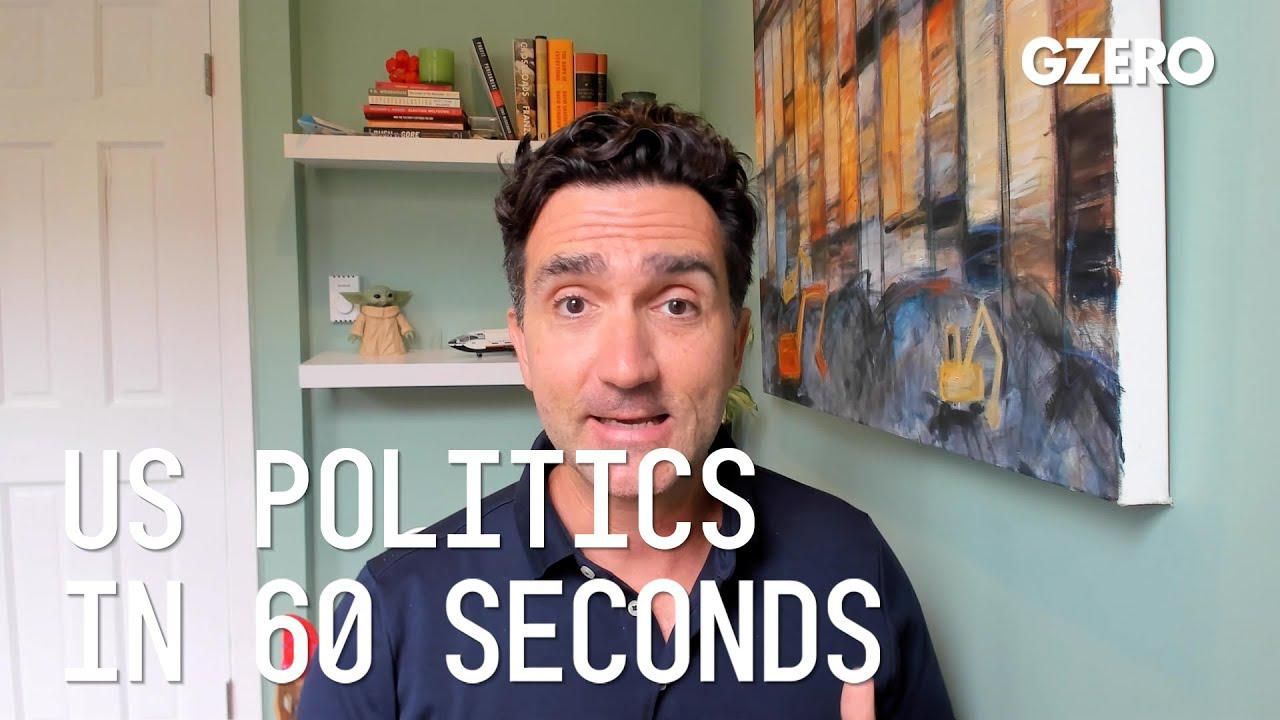US Politics In 60 Seconds
US Senate passes bipartisan gun bill but SCOTUS may loosen gun laws

US Senate Passes Bipartisan Gun Bill but SCOTUS May Loosen Gun Laws | US Politics :60 | GZERO Media

Jon Lieber, head of Eurasia Group's coverage of political and policy developments in Washington, shares his perspective on US politics:
How are the rules on gun ownership changing in the US?
This has been the most consequential week for regulations on gun ownership in the US for many years. In response to two recent high-profile mass shootings in New York and Texas, the Senate this week passed a bipartisan bill that restricts access to gun ownership by preventing people convicted of domestic abuse against a romantic partner from purchasing a firearm. And also increases funding for mental health, school security and incentivizes states to adopt laws that prevent people who are in mental distress from purchasing a gun.
At the same time, the Supreme Court struck down a rule in New York State that requires an applicant to demonstrate a "proper cause" before they will issue a concealed carry permit. The Supreme Court's decision, the first on gun rights in over a decade, has the potential to lead to the overturning of similar laws in other states, expanding the ability for individuals to carry firearms outside their home. Though several justices noted that this decision does not overturn other licensing requirements, such as background checks or firearms training.
The courts were reshaped by President Trump who appointed over 200 judges at the circuit and district court level and put three conservative justices on the Supreme Court who have signaled they are ready to overturn decades of precedent in gun laws, abortion, and business regulation. So, once the House passes this gun bill it will be harder for certain people to purchase guns and this is likely to reduce crime and save lives, but thanks to the Supreme Court, it will be easier for other people in some states to own and carry firearms in public.
The effects on public safety from these two measures are unclear. As Justice Alito pointed out, crimes are frequently committed by people who own guns unlawfully. But politicians in states with large densely packed cities worry that limiting their ability to regulate gun ownership will make it harder to stop gun crimes. There's little evidence to support these claims and in fact, the evidence on the effects of concealed carry permits in crime in either direction is mixed the best. And in the absence of stronger evidence linking these permits to higher crime, the court's rightward turn towards liberalizing gun laws is likely to increase access to gun ownership.
In this Quick Take, Ian Bremmer addresses the killing of Alex Pretti at a protest in Minneapolis, calling it “a tipping point” in America’s increasingly volatile politics.
Who decides the boundaries for artificial intelligence, and how do governments ensure public trust? Speaking at the 2026 World Economic Forum in Davos, Arancha González Laya, Dean of the Paris School of International Affairs and former Foreign Minister of Spain, emphasized the importance of clear regulations to maintain trust in technology.
Will AI change the balance of power in the world? At the 2026 World Economic Forum in Davos, Ian Bremmer addresses how artificial intelligence could redefine global politics, human behavior, and societal stability.
Ian Bremmer sits down with Finland’s President Alexander Stubb and the IMF’s Kristalina Georgieva on the sidelines of the World Economic Forum to discuss President Trump’s Greenland threats, the state of the global economy, and the future of the transatlantic relationship.